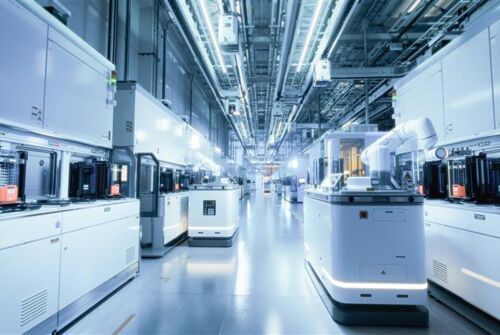Optimizing Semiconductor Factories
The role of AI, automation, and smart scheduling

We recently spoke with John Behnke, General Manager of Smart Manufacturing at INFICON, about what’s top of mind for semiconductor professionals. Among some of the hottest topics circulating today are AI, automation, and smart tools to help fabs operate optimally.
Behnke has more than four decades of industry experience. He leads a global team that develops and deploys Smart Manufacturing software and hardware solutions to improve factory performance.
Let’s dive in!


Question: John, what do you see as the biggest challenges in semiconductor manufacturing today?
John Behnke: The semiconductor industry is in a downturn but still forecasted to grow significantly by 2030. Some of the industry’s top challenges include increased global competition and lower demand resulting in underloaded fabs, cost pressures, time-to-market demands, increasing product loading complexity, and increased sustainability requirements. To position themselves for the next upturn, manufacturers must leverage smarter, autonomous solutions to stay competitive.
Q: How does INFICON address these challenges?
JB: Our Operations Digital Twin, Factory Scheduler, and NextMove solutions streamline workflows, reduce cycle times, and optimize decision-making using AI and real-time data integration. This improves efficiency for legacy and advanced semiconductor fabs as well as substrate manufacturers and back-end factories.
Q: Why are digital twins so important in semiconductor manufacturing?
JB: Digital twins provide a real-time view of factory operations, consolidating data from Manufacturing Execution Systems, Automated Material Handling, and equipment interfaces. They enable real-time dashboards, integrated reporting, smart scheduling, and predictive maintenance and help fabs operate with greater efficiency, enabling significant improvement in key KPIs like cycle time, on-time delivery, and tool OEE.
Let's Stay Connected
INFICON will be presenting at the Global Semiconductor Hub, as well as exhibiting at presenting at Semicon West.
Or you can contact us to connect even sooner!
Q: How is INFICON leveraging AI?
JB: INFICON leverages various forms of AI to enhance its products, including our fault detection, scheduling, knowledge access, and advanced control room capabilities. For example, our SmartFDC improves anomaly detection, AI-driven scheduling dynamically optimizes production, and Agentic AI will soon be supporting our control room.
Q: How do your solutions support both legacy and cutting-edge fabs?
JB: We enhance legacy fabs by creating an intelligent Digital Twin on top of the factory’s historical systems which enable modern Smart solutions like scheduling, metrology sampling optimization, comprehensive dashboards, etc. For new fabs we integrate our advanced smart solutions with the initial systems architecture enabling seamless data collection and integration across the fab. This enables the new fab to start up with smart solutions that seamlessly support the fab as it ramps. We leverage AI capabilities in our common core software package which is used to support both legacy and new fabs.
Q: What’s the future of Smart Manufacturing?
JB: Autonomous, AI-driven factories with self-optimizing control rooms, predictive solutions, and interconnected digital twins. The goal is fully automated, data-driven decision-making to maximize efficiency and sustainability.
Q: Any final thoughts?
JB: Semiconductor manufacturing is evolving fast. AI, automation, and data integration are key to staying competitive. INFICON is committed to helping manufacturers turn data into action and drive smarter, more resilient operations.

